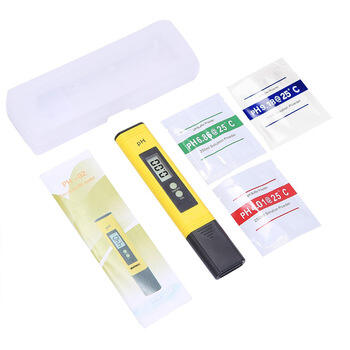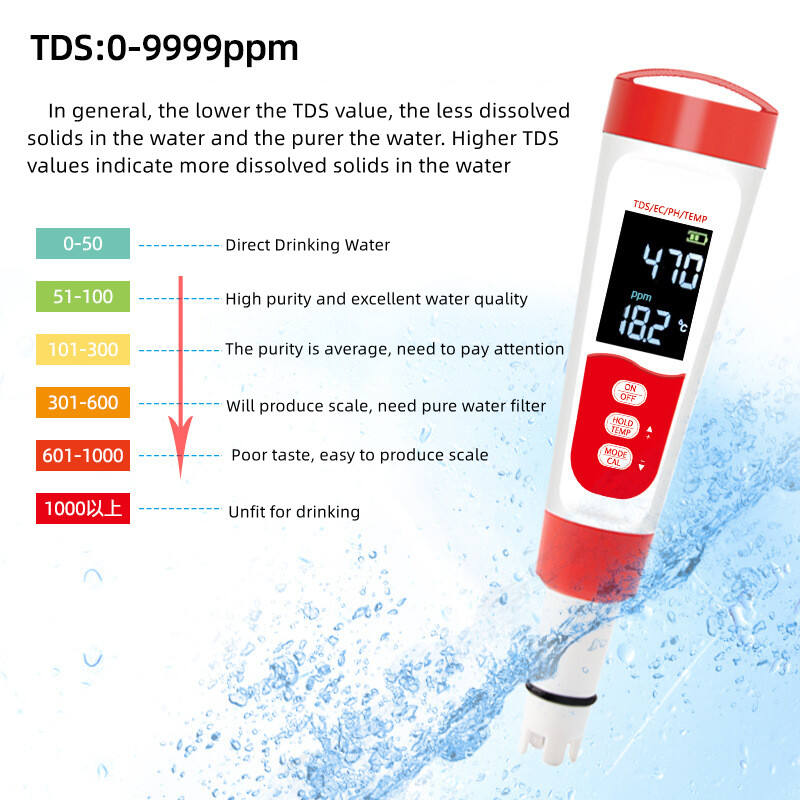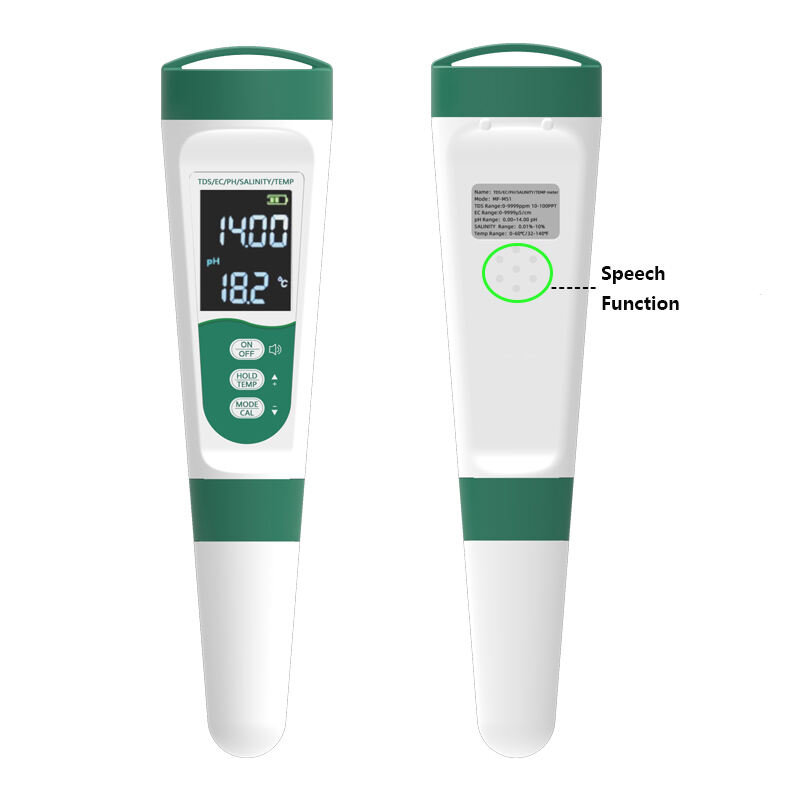ph and tds
pH and TDS (Total Dissolved Solids) measurements are fundamental parameters in water quality assessment and monitoring. pH measures the acidity or alkalinity of a solution on a scale of 0 to 14, while TDS quantifies the total amount of dissolved minerals, salts, and metals in water. These measurements are crucial in various industries, from agriculture to manufacturing. Modern pH and TDS meters combine advanced sensor technology with digital displays for accurate, real time readings. The instruments often feature automatic temperature compensation, ensuring reliable measurements across different conditions. In water treatment facilities, these tools help operators maintain optimal water quality by monitoring chemical balance and mineral content. For hydroponic systems, pH and TDS measurements are essential for plant nutrient uptake and growth. The technology has evolved to include wireless connectivity, data logging capabilities, and smartphone integration, making it easier to track and analyze water quality trends over time. These instruments are designed for durability and ease of use, with waterproof casings and simple calibration processes. The combination of pH and TDS measurements provides a comprehensive understanding of water quality, making these tools indispensable in both professional and household applications.


